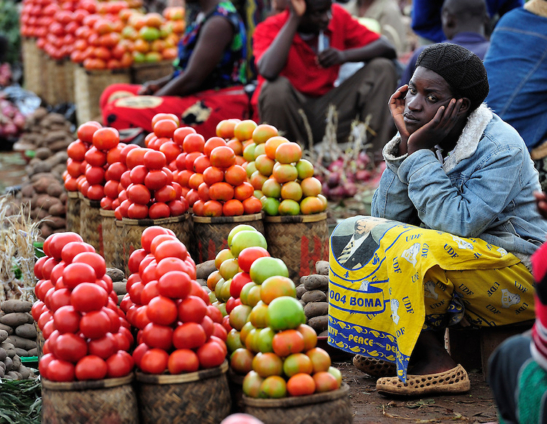Featured News

Posts List
Posts Slider
Posts Carousel
Latest News
India Mourns the Quiet Revolutionary: Manmohan Singh’s Enduring Legacy
India bids farewell to one of its most influential statesmen, former Prime Minister Manmohan Singh, who passed away on December 26, 2024, at the age...
Can Ghana’s New Leadership Tackle the Economic Storm Ahead?
Ghana’s recent elections have brought a dramatic political shift, with former President John Dramani Mahama reclaiming power. His victory over Vice President Mahamudu Bawumia signals...
Ghana at the Ballot Box: Why Wise Voting Matters More Than Ever
Election Day in Ghana is more than a democratic ritual—it’s a defining moment for the nation. Today, millions of Ghanaians will head to polling stations...
Strategic Shift in Energy: Ghana to Import Fuel from Nigeria’s Dangote Refinery
In a significant move aimed at securing energy stability and reducing costs, Ghana is preparing to source petroleum products from Nigeria’s Dangote Oil Refinery. Expected...
Ghana’s Digital Transformation: The Launch of 5G Network Sets New Standards for Connectivity and Economic Growth
Accra, Ghana – Ghana has officially entered the realm of next-generation connectivity with the launch of its fifth-generation (5G) mobile network, marking a transformative step...
Lifestyle
Unlocking Destinies: A Tale of Bravery and Redemption
Chapter 1: The Legend of Aseda
Once upon a time in the serene and small village of Aseda, nestled between mountains, minerals, vegetation, and water bodies, the villagers were plagued by hunger, famine, and strange diseases. Despite their land’s natural wealth, these adversities tormented them. There was, however, a legend about a magical key that could unlock their destinies, fortune, and success. This secret key was said to be hidden deep within an enchanted forest, guarded by mystical creatures. Many brave warriors had attempted to find the key, but none had succeeded.
Desperate, the villagers cried to their gods, offering sacrifices and burnt offerings, but their pleas went unanswered. Finally, the chief priest, after a period of intense prayers, received a message from the gods. He summoned the villagers to the market square for an important announcement. The people, anxious and hopeful, gathered as the priest revealed that the gods had chosen a young girl named Luna, an outcast, to embark on the journey to find the key.
Chapter 2: The Chosen One
The revelation that Luna, an outcast, was chosen by the gods caused a stir among the villagers. Despite their gossip and scepticism, the chief priest silenced them, blessing Luna and giving her a sacred sword and magical powers for her quest. Luna, though young, was full of wonder, courage, and bravery. She accepted her destiny to redeem the people who had mistreated her.

On the day of her journey, the villagers and the chief priest escorted Luna to the forest’s edge. They provided her with food, water, and a calabash filled with eggs, instructing her to use them to ward off evil spirits. With a heavy heart but a determined spirit, Luna ventured into the forest under the soft glow of the moon. She faced numerous challenges, from tricky riddles posed by mischievous fairies to navigating a labyrinth guarded by ancient spirits. Guided by the priest’s instructions and her unwavering determination, Luna pressed on.
Chapter 3: The Quest for the Key
After a long and arduous journey, Luna decided to rest near a huge palm tree. She ate some food, hydrated herself, and fell into a deep sleep. Despite the fairies’ attempts to wake her with tickles, she remained asleep until strange voices startled her awake. Realising she was near the river where many heroes had failed, Luna prepared herself for the next challenge.
The river goddess, guarding the crossing, demanded that Luna sing and dance. Luna complied, performing a song that pleased the goddess, who then allowed her to pass. Continuing her journey, Luna reached a majestic oak tree surrounded by fairies and magical flowers. Beneath its roots, she found the shimmering key but had to solve a riddle to claim it. With intelligence and courage, Luna answered correctly and lifted the key towards the sky, feeling a surge of joy and triumph.
With the legendary key in hand, Luna thanked the gods and fairies and wished for safe passage back home. Her wish was granted, and she appeared in the market square. The villagers, along with the chief priest, celebrated her return. The key was used to perform a ceremony that ended the village’s suffering. Over time, the villagers prospered, and Luna was hailed as a hero. Her bravery, determination, and the wisdom of the gods led to a new era of prosperity for Aseda.
Luna’s story became a legend, teaching the villagers the value of courage, resilience, and faith. She was remembered as the outcast who saved her people, embodying the spirit of redemption and the power of destiny.
Lesson
Embrace the Power Within
The story of Luna teaches us that true strength lies within ourselves, often unnoticed until we face significant challenges. Luna, an outcast, discovered her inner power and courage when her village needed her most. Despite being marginalised, she rose to the occasion, proving that everyone has the potential for greatness, regardless of their circumstances or how others perceive them.
Believe in Your Worth
Furthermore, Luna’s journey reminds us to believe in our own worth, even when others doubt us. She was chosen by the gods not because she was the most obvious choice but because she had an inner strength and purity of heart that were crucial for the mission. This highlights the importance of self-belief and recognising our unique value, even when we feel undervalued by society.
Perseverance Amidst Adversity
Moreover, Luna’s quest through the enchanted forest, filled with challenges and obstacles, symbolises the perseverance needed to overcome life’s hardships. Her determination to find the key and save her village teaches us that perseverance is crucial to unlocking our destinies. Even when the path is fraught with difficulties, staying committed to our goals can lead to remarkable achievements.
The Power of Redemption
Finally, Luna’s story is also about redemption and forgiveness. Despite being mistreated by her fellow villagers, she undertook the perilous journey to save them. Her actions demonstrate that redemption is possible and that forgiving those who wrong us can lead to healing and unity. It’s a reminder that holding on to grudges only hinders our progress, while forgiveness and selflessness can bring about profound change.
Motivational Takeaway
Luna’s adventure encapsulates the profound lesson that within each of us lies the potential to change our circumstances and impact the world positively. No matter where we start or the challenges we face, embracing our inner strength, believing in our worth, persevering through adversity, and choosing forgiveness can unlock destinies and create legacies that inspire others.
Economy
Can Ghana’s New Leadership Tackle the Economic Storm Ahead?
Ghana’s recent elections have brought a dramatic political shift, with former President John Dramani Mahama reclaiming power. His victory over Vice President Mahamudu Bawumia signals a clear demand for change as citizens grapple with rising economic hardships. However, Mahama’s administration faces a monumental task ahead, with deep structural economic issues threatening to overshadow any quick fixes.
Inflation and Rising Costs Squeeze Ghanaians
The economic situation is dire, with inflation reaching 23.0% year-on-year in November 2024, a jump from 22.1% the previous month, according to the Ghana Statistical Service. This marks the third consecutive month of inflation increases, driven largely by skyrocketing food prices. Staples such as vegetables, tubers, and plantains have become more expensive, squeezing household budgets.

Beyond inflation, the cedi’s consistent depreciation against major currencies has amplified import costs, making essential goods less affordable. Ghana’s reliance on imports for critical commodities has exposed the economy to external shocks, further exacerbating inflationary pressures.
Mounting Debt Limits Fiscal Maneuverability
Ghana’s debt levels have reached unsustainable heights. The World Bank estimates that the debt-to-GDP ratio now exceeds 90%, severely constraining the government’s ability to respond to crises or invest in development projects. Debt servicing alone consumes a significant portion of national revenue, leaving little room for public spending on infrastructure, education, and healthcare.
Efforts to manage the debt burden under the existing $3 billion IMF program have introduced austerity measures, including public spending cuts and tax hikes. While these measures aim to stabilize the economy, they have also sparked widespread dissatisfaction among Ghanaians already struggling with high living costs.
IMF Program Renegotiation: Hope or Hurdle?
Mahama has pledged to renegotiate the terms of Ghana’s IMF deal, seeking more flexibility to prioritize growth and social spending over stringent austerity. However, renegotiating with the IMF is a complex and uncertain process. The fund typically insists on fiscal discipline for economies deemed high-risk, limiting the scope for immediate relief.

Moreover, any renegotiation must address the root causes of Ghana’s economic troubles. Beyond debt, the country faces systemic issues such as weak revenue generation. Ghana’s tax-to-GDP ratio remains below the sub-Saharan African average, reflecting inefficiencies in tax collection and enforcement. Boosting domestic revenue will require politically sensitive reforms, such as broadening the tax base and tackling corruption.
Public Frustrations Mount
Ghanaians’ expectations are high, fueled by Mahama’s campaign promises to alleviate economic hardships. Yet the magnitude of the crisis means that tangible improvements will take time. Infrastructure projects, industrialization efforts, and job creation—all critical to long-term recovery—require significant investment and planning.
Immediate relief measures, such as subsidies or cash transfers, could offer short-term respite but might strain the already limited fiscal space. Striking a balance between short-term relief and long-term sustainability will test the new administration’s resolve and ingenuity.
Political Pressures Amplify Economic Stakes
The incoming administration’s ability to navigate these economic challenges will also depend on its relationship with Parliament. With the National Democratic Congress (NDC) now holding a majority, legislative support may come more easily.

However, this also heightens the pressure on Mahama to deliver swift results. Any perceived delays or missteps could erode public and parliamentary confidence, further complicating governance.
Can Ghana’s Economy Stabilize?
The scale of Ghana’s economic troubles suggests that disappointment may be inevitable, at least in the short term. Transformative change will require bold, innovative policies and effective stakeholder engagement. Transparency in policymaking and consistent communication with the public will be crucial to managing expectations and maintaining trust.
While the road ahead is fraught with challenges, it is also an opportunity for Mahama’s administration to lay the foundation for a more resilient and inclusive economy. Whether this opportunity is seized or squandered remains to be seen, but the stakes could not be higher for Ghana and its people.





































